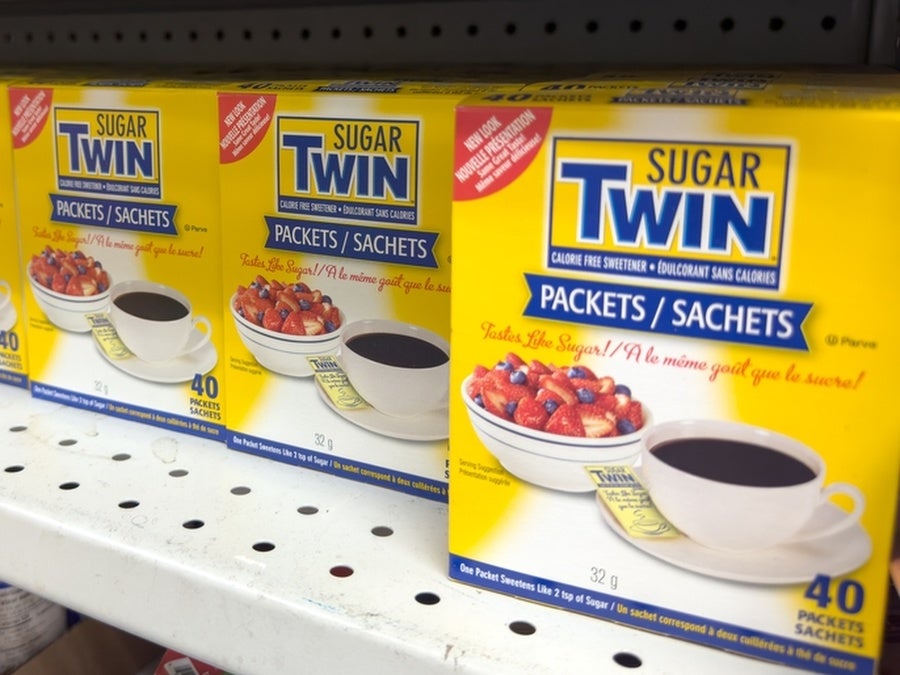
The World Health Organization (WHO) has rebuffed claims the panel used to assess aspartame’s safety for consumption last month could have been biased.
The findings of two World Health Organization studies into the safety of the artificial sweetener in July ruled the ingredient was a “possible carcinogen” but could be consumed safely within previously recommended guidelines.

Discover B2B Marketing That Performs
Combine business intelligence and editorial excellence to reach engaged professionals across 36 leading media platforms.
While the International Agency for Research on Cancer (IARC) said aspartame should be added to the list of possibly carcinogenic substances, a separate report by the Joint Food and Agriculture Organisation and WHO Joint Expert Committee on Food Additives (JECFA) said it had not found convincing evidence of the link between the substance and cancer.
However, the California-based non-profit US Right To Know, a public-health research group, has questioned the “split decision” between JECFA and IARC.
In an article published last month (19 July), executive director and co-founder Gary Ruskin accused the United Nations’ agency of bias in JECFA’s findings due to panel members’ alleged links with the International Life Sciences Institute (ILSI) – a food-industry lobby group founded in 1978 by Alex Malaspina, then vice-president of The Coca-Cola Company.
But the WHO defended its panel selection process, telling Just Food all experts involved in the review had signed a four-year declaration of interest and had had no ties with ILSI for over a decade.

US Tariffs are shifting - will you react or anticipate?
Don’t let policy changes catch you off guard. Stay proactive with real-time data and expert analysis.
By GlobalDataA spokesperson for the WHO said: “The panel was composed of 13 experts. Before sitting on this expert committee, they need to sign a declaration of interest for the last four years. This is the requirement.
“The experts [cited by US Right To Know and put to the WHO by Just Food] haven’t worked with ILSI for more than ten years.”
In July, JECFA said it would maintain its guidance that aspartame was safe to consume in moderation. It continued to recommend people keep consumption of aspartame below 40mg/kg a day, a level it first set in 1981.
In an article published on US Right To Know’s website, Ruskin said: “Why doesn’t the JECFA recommendation line up with the IARC classification or the May 2023 WHO guideline not to use non-sugar sweeteners for weight control?
“One possible answer: at least six out of 13 JECFA panel members have ties to ILSI, a longtime Coca-Cola front group. Both the chair and vice chair of the JECFA panel have ties to ILSI.”
He added: “This is an obvious conflict of interest. Because of this conflict of interest, JECFA’s conclusions about aspartame are not credible, and the public should not rely on them.”
Coca-Cola Co. ended its association with ILSI in 2021, according to a report by Bloomberg. ILSI Europe lists Mondelēz International and PepsiCo International among its members.
Details of the IARC’s stance on aspartame as a “possible carcinogen” were first ‘leaked’ to Reuters in June, with the news agency citing unnamed sources.
Industry bodies were quick to quash worries over the substance’s safety. The International Council of Beverages Associations (ICBA) said such a stance by the WHO “contradicts decades of high-quality scientific evidence” and could lead people to consume more sugar.
Aspartame is an artificial non-saccharide sweetener commonly used in a range of food items and carbonated soft drinks.
The substance has been approved for use in more than 90 countries worldwide despite some studies linking it to health problems including cancer, cardiovascular disease, Alzheimer’s disease, seizures, stroke and dementia.
The US Food and Drug Administration, however, has ruled the substance as safe five times since first approving it as a sweetener in 1974.





